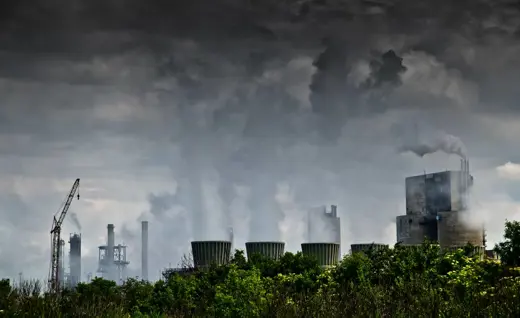A recent article in The Times posed some important questions about the impacts of climate change on sport and its vulnerability as an industry to these risks. Chief Sports Writer, Owen Slot asked: “How long until the winter Olympics is skiied only on artificial snow. Indeed: how many more skiing winters will we get at all? How much longer will football pitches still grow in the hotter climates on the planet? And when will the Ashes in Australia be restricted to night games because it is too hot to play in the day?
“This is by no means a vision that stretches the imagination because an early version of it is already upon us. A typhoon forced the cancellation of three matches in the 2019 Rugby World Cup; the number of Test cricket days lost to rain in England has almost doubled in the past decade; tennis players at the Australian Open have collapsed owing to the excessive heat.”
According to a pre-COVID study by CareerBuilder in 2019, the sports industry was contributing approximately £28.8 billion annually to the global economy. As Environmental, Social Governance (“ESG”) becomes a focal point for both public and private businesses, and with large scale sporting events starting to make a welcome return after the pandemic hiatus - we must ask ourselves a different question - how is sport also contributing to the climate change problem, and what can be done about it? A report issued by the Rapid Transition Alliance in June 2020 found that “the global sports industry is responsible for at least 0.6 per cent of global emissions that makes it responsible for 300–350 million tonnes of carbon dioxide emissions.”
Various sports, events and tournaments are already making commitments to becoming more sustainable. The 2020 Tokyo Olympics, billed as the “Green Olympics”, was perhaps the most sustainable event yet to be hosted on the world stage. Under the banner “Be better, together” the organizing committee set out to make the 2020 games the most sustainable yet, with an athletes’ village built from locally sourced wood, event vehicles powered by hydrogen fuel cells, a commitment to renewable energy to power the games (including onsite solar generation) and a target to recycle 99% of everything used throughout the event. The American Super Bowl also went zero waste last year and the Helsinki International Horse show put in place zero-waste measures, innovatively powering the event with electricity generated from horse manure!
With the T20 Cricket World Cup kicking off this week and running through to November, world leaders are simultaneously convening in Glasgow for the 2021 United Nations Climate Change Conference (“COP26”). As these two globally visible events run in tandem, it is critical that cricket now goes into bat for sustainability.
Based on the in-house research of our expert ESG team, we estimate that in the time it takes to play one T20 cricket match, 18,000 acres of rainforest are lost – that’s equivalent to deforestation of an area the size of 4,500 cricket fields! Research suggests that cricket is one of the sports most gravely impacted by climate change; it takes place in some of the vulnerable parts of globe (the current T20 tournament is taking place in the UAE and Oman) including Australia, India, Sri Lanka and the Caribbean.
With that in mind, Apex Group has decided to take definitive action. Appointed the Official Sustainability Partner of defending T20 champions, Cricket West Indies (“CWI”) and the West Indies Men’s Team, we are entering into this ground-breaking partnership, thought to be the first of its kind, to support CWI in identifying and calculating the team’s carbon emissions and putting in place an action plan to reduce and offset these, in order to lead the way with sustainability in cricket. Read the press release here.
We encourage more sporting teams, venues and events to drive positive change and are here to be their sustainability partner, guiding them with firstly understanding their impacts, and then working toward an achievable plan to become carbon neutral and implement long-term sustainable change.
Apex Group is more than just a financial services provider, we want to drive positive change for a more sustainable future.




